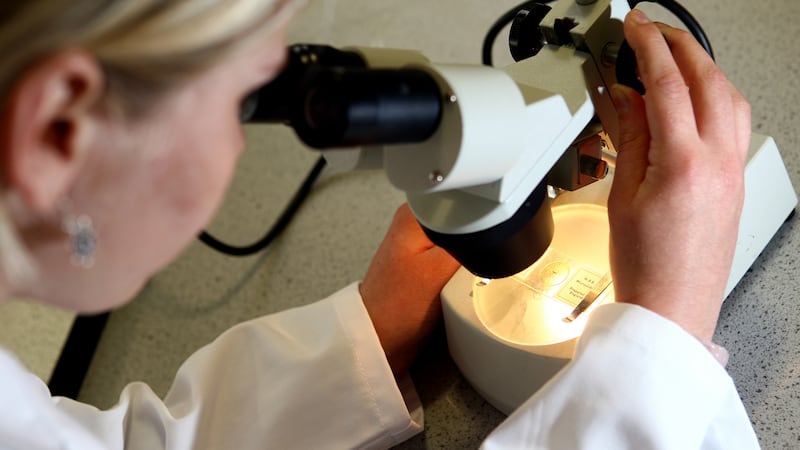The climate emergency is the biggest issue facing us all. It’s something that none of us can ignore any longer. The future of our planet is at stake and every one of us needs to change in order to save it.
Here in Northern Ireland we are as vulnerable as anywhere. Rising temperatures, chaotic weather and the damage being done to biodiversity affect us as much as anyone.
We may only produce about 0.04 per cent of the world’s carbon emissions, but ‘only’ is a misleading word here. It’s hugely encouraging that the climate change bill passing through Stormont shows there is a real will among our politicians to deal with this. It represents a serious and determined attempt to address the greatest challenge of our age and MLAs have to be commended for taking the initiative.
Of course, it’s not going to be straightforward. Any radical change to our environment will inevitably have consequences for our economy and society and there are always going to be conflicts of interest.
For instance, there is an impassioned debate currently taking place within the farming community, with many of our farmers concerned the new act will impact on their industry and their livelihoods.
What we cannot do, however, is to bury our heads in the sand over this. Unfortunately, backing for the ambitious new bill at Stormont isn’t universal, with the usual anti-progressive forces – principally the DUP and TUV – voting against it.
The new DUP leader, Edwin Poots, has called it a ‘Disneyworld bill” while his MP Sammy Wilson has accused those backing it of naivety.
The rest of us will get on with putting together a determined programme to tackle climate change and to do our small but important bit. I’m proud to be part of a political consensus that is really trying to make a difference on this.
I wish I could say the same about Westminster. Last month, I spoke in the House of Lords on this issue raising my concerns that the British government seems to be dragging its heels. We begin the scrutiny of the Environment Bill this week in the House of Lords which needs to be considered in the context of Northern Ireland where it is possible to ensure effective oversight on environmental law and progress by strengthening the independence and enforcement function of the Office for Environmental Protection; ensuring that environmental principles are at the heart of all government policy making and reducing our global footprint and contribution to global deforestation – all these components are required in terms of climate change mitigations.
Later this year, the UK will host the UN’s COP26 climate change summit in Glasgow. This is a global event in the presence of world leaders and discussions and decisions at it will literally shape the future of our planet. This you would think be an unparalleled opportunity for the UK to present itself as a leader in this area and Boris Johnson as a champion of the cause. Unfortunately, the climate agenda seems to fall into the usual Tory pattern – lots of words but no sign of real action to back them up.
It’s not enough to merely state intentions. I want to hear concrete plans from the British government for putting these proposals into effect. Further amendments to the Environment Bill in the House of Lords presents such an opportunity within the next number of weeks.
Time is already slipping away. The year 2050 is closer than we think. The planet can’t wait and neither can we. Let’s get to it.
BARONESS MARGARET RITCHIE
House of Lords and Downpatrick
Time to get debate on Irish unity started
I welcome the motion passed by Mid Ulster Council whereby businesses and ratepayers in the area will be consulted about the prospect of Irish unity in light of Brexit and the new dynamics this brings for businesses.
An Ulster Unionist councillor said that Dublin had no more desire to take on the north of Ireland than it did in 1921 when it agreed to partition. He implies that partition was willingly agreed to in 1921 that both sides saw it as the collective way forward, ignoring that partition was signed up with a gun pointed to the republican side’s head with threats of ‘grave and terrible war’ and other such musings.
The north of Ireland at that time accounted for 82 per cent of the Irish economy and its loss left the new Irish Free State an economic agriculturally-dependent basket case. The industrious north had a higher GDP per capita at the time than London and it could surely be argued that its retention by Britain was one more in selfish economic interests and not the benevolent act of loyalty unionists would have you believe.
So, in the modern era with the economic fortunes of both states taking a 180, it is time for the debate to start something new and fresh away from the sectarian lines drawn in 1921 and if some unionists don’t want to be part of that process, so be it.
PATRICK DONOHOE
Greencastle, Co Tyrone
Conspiracy theories flourishing
We live in an age when conspiracy theories are flourishing. These can be encouraged by the lack adequate explanation of events, the internet and social media. The recent Health Service Executive cyber attack in Ireland, the US president Joe Biden under fire from his own Congress for waiving sanctions on the Russian pipeline - apparently to mend frayed relationships with Europe - and the recent cyber attack that took a major US fuel pipeline offline, a question can be posed: are there likely conspiracy theories to be considered here? They may, however, seem crazy and unsupportable but with America, European countries and Russia involved with the drama, could the drift to conspiracy theories be the only logical explanation?
JAMES G BARRY
Templeogue, Dublin 6
Cliftonville FC should give Puma the boot
On Saturday, May 29, the game between Cliftonville FC and Linfield FC was interrupted by a small group of protesters carrying a Palestine flag and a banner that proclaimed to the world ‘Boycott Puma’. This was to highlight the ongoing commercial relationship between Cliftonville and Puma, a major global corporate sports brand.
Puma is an official sponsor of the Israel Football Association. Israel has been described as an apartheid state. For Cliftonville, a promoter and champion of the slogan ‘Give Racism The Boot’, it seems like double standards to call for an end to racism in football here while accepting sponsorship from a global company that stands accused of supporting an apartheid regime.
Now is the time for the board to unequivocally and publicly state they will cease accepting monies from companies that support apartheid states.
FRA HUGHES
Belfast BT14







